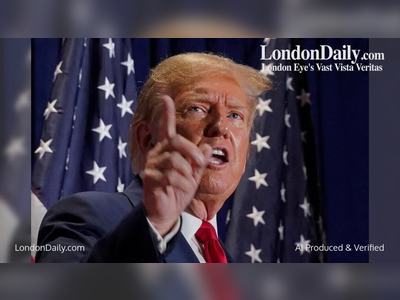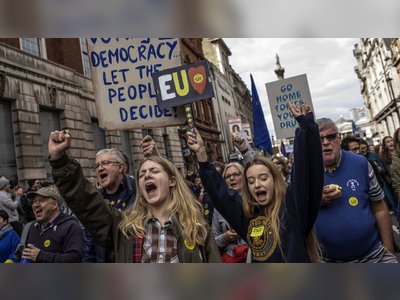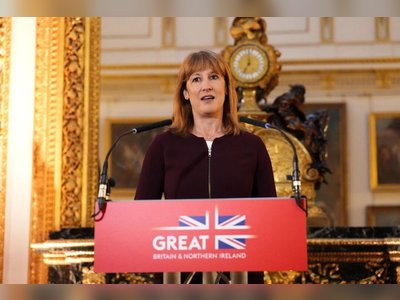BNP Paribas Abandons Ban on 'Controversial Weapons' Financing Amid Europe’s Defence Push
French bank shifts long-standing policy to allow broader defence lending, sparking debate over ethics, ESG rules and geopolitics
BNP Paribas has quietly rescinded a key element of its 2010 commitment that barred it from financing 'controversial weapons,' marking a significant pivot in the bank’s defence and security policy.
The retraction comes at a moment when Europe is rearming and subsidies to defence companies are under pressure from states seeking increased military capability.
Until now, the bank defined controversial weapons as those with indiscriminate effects or excessive collateral harm, effectively excluding funding for certain arms systems.
But in its revised policy, the bank said that the term was too vague and could inadvertently include systems like drone production or dual-use platforms.
Instead, it now draws a distinction: projects must either be sanctioned under international treaties or must not violate humanitarian law.
The change opens the door for broader financing to the defence industry, particularly among NATO and European allies.
The shift reflects growing financial and political incentives in Europe’s security environment.
With threats from Russia and geopolitical pressure from allies, states are pressuring banks to support domestic defence industry growth.
BNP Paribas is not alone—other European banks, including Deutsche Bank, have also begun repositioning themselves to capture the rising volume of defence deals, mergers and acquisitions, and capital markets issuance.
Critics view the move as a challenge to ESG (Environmental, Social, Governance) discipline.
Financing weapons—even those technically 'legal'—raises reputational and ethical risks, especially when public or private projects are in conflict zones.
The bank’s decision highlights tensions between commercial opportunity and responsible conduct in finance.
BNP Paribas’s official communications emphasize that its new defense policy focuses on supporting companies in NATO countries and Europe.
As of 2024, the bank had already allocated roughly €24 billion toward corporate clients, about half of which pertained to the defence sector.
Under the new policy framework, the bank is better positioned to expand lending, bond underwriting, guarantees, and export finance for defence-related firms.
It remains to be seen how this strategic realignment will affect BNP Paribas’s standing among socially conscious investors, regulators, and civil society.
As banks navigate the pressure between supporting national security objectives and upholding ethical constraints, the lines around what constitutes acceptable arms financing are becoming blurrier—and the consequences more consequential.
The retraction comes at a moment when Europe is rearming and subsidies to defence companies are under pressure from states seeking increased military capability.
Until now, the bank defined controversial weapons as those with indiscriminate effects or excessive collateral harm, effectively excluding funding for certain arms systems.
But in its revised policy, the bank said that the term was too vague and could inadvertently include systems like drone production or dual-use platforms.
Instead, it now draws a distinction: projects must either be sanctioned under international treaties or must not violate humanitarian law.
The change opens the door for broader financing to the defence industry, particularly among NATO and European allies.
The shift reflects growing financial and political incentives in Europe’s security environment.
With threats from Russia and geopolitical pressure from allies, states are pressuring banks to support domestic defence industry growth.
BNP Paribas is not alone—other European banks, including Deutsche Bank, have also begun repositioning themselves to capture the rising volume of defence deals, mergers and acquisitions, and capital markets issuance.
Critics view the move as a challenge to ESG (Environmental, Social, Governance) discipline.
Financing weapons—even those technically 'legal'—raises reputational and ethical risks, especially when public or private projects are in conflict zones.
The bank’s decision highlights tensions between commercial opportunity and responsible conduct in finance.
BNP Paribas’s official communications emphasize that its new defense policy focuses on supporting companies in NATO countries and Europe.
As of 2024, the bank had already allocated roughly €24 billion toward corporate clients, about half of which pertained to the defence sector.
Under the new policy framework, the bank is better positioned to expand lending, bond underwriting, guarantees, and export finance for defence-related firms.
It remains to be seen how this strategic realignment will affect BNP Paribas’s standing among socially conscious investors, regulators, and civil society.
As banks navigate the pressure between supporting national security objectives and upholding ethical constraints, the lines around what constitutes acceptable arms financing are becoming blurrier—and the consequences more consequential.










